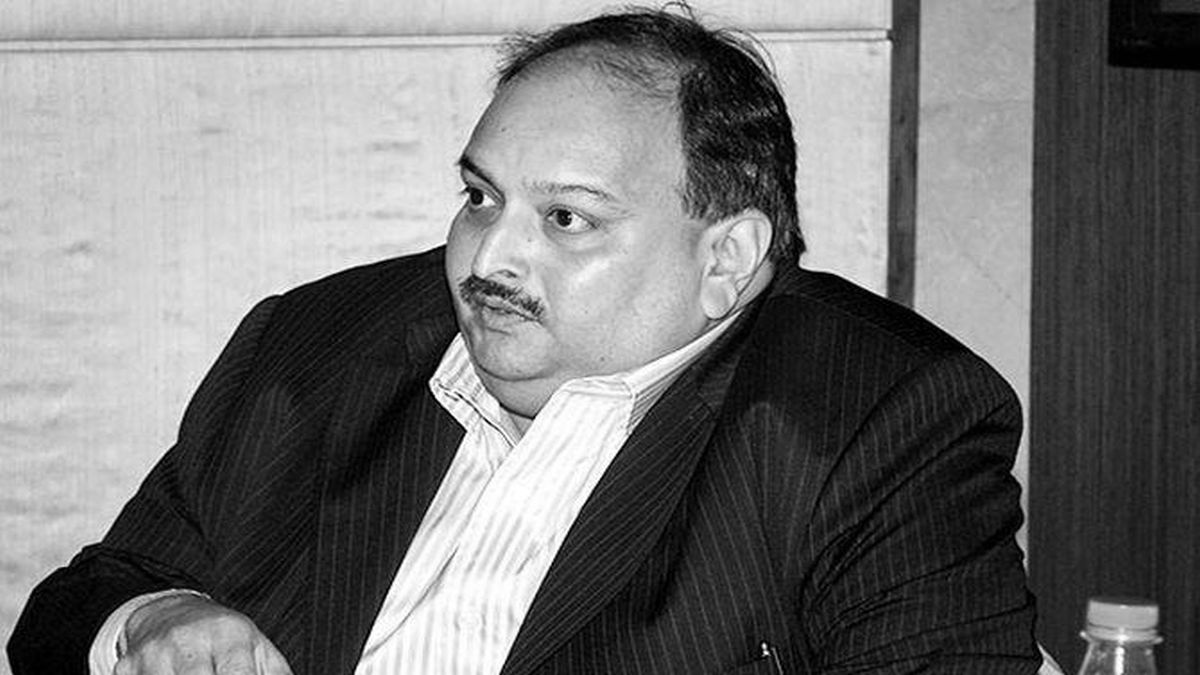What will life look like for Mehul Choksi in an Indian jail?
New Delhi has been trying to get the fugitive businessman – who was detained in Belgium in April – extradited to India since 2018. The Ministry of Home Affairs (MHA) has now sent a letter to Belgian authorities detailing how Choksi will be treated in India, assuring that conditions are on par with international human rights standards.
This comes after Choksi’s lawyers argued that he suffers from serious health problems and should not be kept in custody. Choksi’s arrest came on the basis of an extradition request sent by the Central Bureau of Investigation (CBI). He is wanted in India in connection with the over Rs 13,000 crore Punjab National Bank (PNB) fraud case, as well as several other unrelated investigations. Choksi is the uncle of billionaire diamantaire Nirav Modi, another accused in the 2018 loan fraud. Nirav, who is currently in the UK, is also facing extradition proceedings.
The Belgian court had in late August turned down a bail plea from Choksi ahead of an extradition hearing slated for the second week of September at the Chambers of Indictment in Antwerp. Choksi has been fighting extradition proceedings since 2018.
What happened?
The Ministry of Home Affairs (MHA) has written to the Belgian Ministry of Justice explaining how Choksi will be kept in Indian custody. The letter, dated September 4, 2025, was penned by Rakesh Kumar Pandey, Joint Secretary, MHA.
India, in the letter, sought to reassure Belgium that Choksi will be treated fairly and humanely and will not be kept in solitary confinement. The MHA said Choksi will be housed in Mumbai’s Arthur Road Jail at Barracks No. 12. The barracks, which currently has two vacant cells, can hold a maximum of six inmates. Barracks No. 12, detached from the main jail complex, is under 24-hour CCTV surveillance. Its inmates are mainly those accused of economic offences—non-violent criminals. It is known to be free from excessive crowding and abuse.
Pandey said Choksi’s cell will provide him with a minimum of three square meters of personal spac e—excluding furniture—throughout his detention. This is at par with the recommendations of the Council of Europe’s Committee for the Prevention of Torture.
Choksi will also be provided with a clean, thick cotton mat, a pillow, a bedsheet, and a blanket . On medical grounds, he may be given a wooden or metal-framed bed. The cell will have adequate light and ventilation via grilled windows and ceiling fans. It will be cleaned regularly and undergo pest control.
‘Sent for regular consultations if required’
He will be provided with clean drinking water daily and have round-the-clock access to medical facilities. According to the letter, Arthur Road Jail has six medical officers, nursing orderlies, pharmacists, and laboratory support.
“There is a 20-bed fully equipped medical facility containing ECG and other equipment within Arthur Road Jail, further supported by a full-scale government hospital located less than 3 km away. The prison hospital has two general wards with a capacity of 20 beds, one psychiatry ward, one TB ward, and a dental facility. The prison has an in-house ambulance. Mehul Choksi will be sent for regular specialist consultations at the government hospital, if required,” the letter said.
Inmates of Barracks No. 12 may also choose to obtain private care at their own expense. The MHA said Choksi’s medical history will be considered, and equipment or therapy can be provided free of charge if recommended by doctors or the courts.
The cell will also have adequate toilet and washing facilities. The letter promised that Choksi will receive adequate food throughout his detention.
“Detainees will receive adequate food three times daily, with accommodations for special dietary needs subject to medical approval. A jail canteen and provisions such as fruits and basic snacks are also available,” the letter stated.
Choksi will also be allowed daily time outside his cell for exercise and recreation.
“Daily outdoor exercise is permitted in an open-to-sky yard, and indoor recreation includes board games and casual badminton. The jail also offers yoga, meditation, and access to a library and reading materials,” the letter added.
On living conditions, the letter noted:
“Mumbai is a coastal city with a tropical climate and distinct wet and dry seasons. The weather of Mumbai is generally pleasant year-round and does not become extreme. Therefore, there is no requirement for heating in the cell. There is no air conditioning provided and generally none required in Mumbai’s climate.”
The MHA said these conditions represent a sovereign commitment from India, made with approval from the state government and prison department. They cannot be superseded by administrative or judicial orders. Such undertakings are standard in extradition cases.
The Antwerp Chambers of Indictment will now examine these assurances alongside legal arguments. If satisfied, it may approve Choksi’s extradition to India to face trial in the CBI case.
The CBI had already sent a team of officials to Brussels, who provided case details, evidence, and documents to the Belgian prosecution. The Indian probe agency is also set to hire a European law firm to assist in the case, officials said.
Choksi faces charges under various sections of the Indian Penal Code (IPC), including criminal conspiracy, cheating, and falsification of accounts, as well as under the Prevention of Corruption Act. These offences also constitute crimes in Belgium, allowing agencies to invoke the “dual criminality” clause of the extradition treaty.
The CBI has additionally invoked the United Nations Convention against Transnational Organised Crime (UNTOC) and the United Nations Convention against Corruption (UNCAC) in its extradition request, the officials noted.
With inputs from agencies


)

)
)
)
)
)
)
)
)



